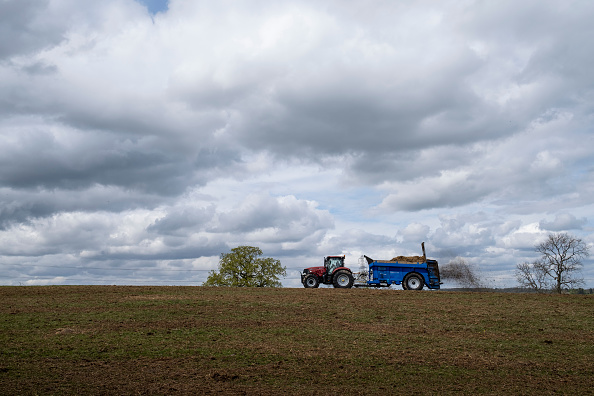
The United Kingdom's efforts to stave off ever-increasing carbon emission levels may be strained following potential stopgaps led by the National Farmers Union (NFU). The organization wants to push back the all-inclusive and eco-friendly Environmental Land Management schemes (Elms) to 2025 and keep in tact for the time being the standing Basic Payment Scheme (BPS), an EU program that pays farmers for their land no matter their concessions on the environment.
According to a report headed by the think tank Green Alliance, delaying Elms would thus only cause a "substantial gap in the UK's net zero plans." The analysis suggests that without the Elms being enacted on time, the UK will be faced with half the potential carbon emissions savings in 2035 and would inevitably cause other areas to ramp up their net-zero plans to make up for these losses.
The UK's enacted net zero pathway posits that the agricultural industry, specifically in terms of land use, must cut carbon emissions by a quarter going into 2030 and then a third by 2035. But on the farmer's side of things, stresses on stability, logistics, and financial incentives are putting a damper on their own pro-eco-friendly endeavors.
For one, fertilizer costs are becoming ever-more astronomical as the Ukraine war continues, and pandemic-related staff losses haven't made things any easier. Brexit-related concerns have also directly impacted farmers. Thus any substantial efforts to maintain the Elms clause are at a standstill with UK farmers persistent on its delay. Even Jim McMahon, the UK's Defra secretary, agrees with the NFU's position.
Related Article: Health Authorities Alert Parents About Increasing Hepatitis Cases Among Children in the UK
"The flagship Elms programme is responsible for a third of farming emissions cuts. Rather than supporting the UK's leading farmers to make their farms more sustainable, in the way the government promised during the Brexit process, the Department for Environment, Food, and Rural Affairs (Defra) is dragging its heels six years after the referendum," explains the Green Alliance's policy director and author of the analysis, Dustin Benton.
Elms was originally supposed to kick into effect in 2020, with various delays pushing the program back. It's caused many in the UK's agricultural scene to feel the government has no idea what it's doing and fear any potential transition will only cause increased issues to arise. The NFU head, Minette Batters, called out the UK government for its purported "total lack of understanding of how food production works" and feared farmers "would be used in trade deals."
Unfortunately for Defra, farming minister Victoria Prentis relayed that Elms won't be delayed or forced into a delay, citing that "BPS did not support food production, and did nothing to stop the decline in nature." Utilizing better regulation and incentives to bolster the promise of net-zero carbon emissions is the only way to ensure farmers go along with the newly-set rules.
Adds Benton, "Delaying reforms of farming payments by another two years would put the UK's climate targets at risk and undermine a transition that the UK's best farmers have already invested in. Much better for Defra to get on with helping farmers build a nature positive, carbon negative food system ahead of the competition."
Read Also: Cryptocurrency Loans: Venezuela President Hints on Offering Them to Agricultural Sector





